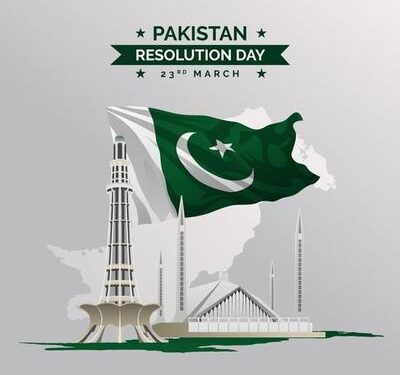NLPD held a seminar on Pakistan Resolution Day, emphasizing Urdu’s role in national identity and Pakistan’s ongoing challenges.
Pakistan Resolution Day:
Pakistan Resolution Day, celebrated on March 23 each year, is one of the most significant days in the country’s history. It marks the adoption of the Lahore Resolution in 1940, which laid the foundation for the creation of Pakistan. This resolution emphasized the need for a separate homeland for Muslims of British India, ensuring that they could freely practice their religion, culture, and traditions.
Numerous organizations hold conferences, events, and talks to commemorate this momentous occasion, emphasizing its significance and applicability in the modern world. The National Language Promotion Department’s (NLPD) one-day seminar on March 21, 2025, in Islamabad was one such occasion.
In addition to discussing the difficulties facing the Urdu language today, this conference gave academics, students, and politicians a chance to consider the historical, linguistic, and cultural facets of Pakistan’s independence.
Significance of the Seminar:
The NLPD Director General, Professor Dr. Muhammad Saleem Mazhar, chaired the seminar. Renowned scholars, researchers, and linguists gathered at the occasion to exchange perspectives on how Urdu contributes to national cohesion. The seminar focused on how language is a potent instrument for social and political transformation in addition to being a tool for communication.
The discussions focused on:
- The importance of Urdu in national unity and identity.
- How the Pakistan Resolution emphasized the cultural and linguistic rights of Muslims.
- The contributions of Urdu in mobilizing people during the freedom struggle.
- The current challenges Urdu faces in the modern world.
Important Insights from the Seminar:
The event featured prominent speakers who shared their perspectives on the Pakistan Resolution and the role of Urdu.
Dr. Rashid Hameed (NLPD Executive Director):
Under British control, Dr. Rashid Hameed emphasized how Pakistan’s founders gained independence in just seven years. He exhorted the young people to be motivated by their sacrifices and strive toward building a powerful and affluent Pakistan.
“To establish Pakistan, our leaders worked with vision and determination,” he said. Why can’t we aim for excellence now if they could accomplish such an amazing goal so quickly?“
Professor Dr Muhammad Naeem Khan (Punjab University):
Urdu is a unifying language in Pakistan, according to Dr. Muhammad Naeem Khan. He underlined that Urdu is the language that unites people from all walks of life, even if there are other regional languages spoken throughout the nation.
He said: “Urdu is a sign of our shared identity, not just a language. It continues to fortify national solidarity and was instrumental in the Pakistan Movement.
Professor Dr. Tahir Jamil (Quaid-e-Azam University):
The political climate before 1947 was thoroughly examined by Dr Tahir Jamil, who also discussed how the Pakistan Resolution was essential in maintaining Muslim identity in the face of Hindu-dominated politics. He clarified that to safeguard religious and cultural liberties, the Muslim League strategically demanded a distinct nation.
He went on to say, “The Pakistan Movement’s leaders protected Muslim identity while deftly navigating political obstacles. The pivotal moment in our history was the Pakistan Resolution.
Urdu’s Role in the Pakistan Movement:
Urdu was more than just a language during the Pakistan Movement. It was a symbol of unity, resistance, and identity. It was the language used in political speeches, newspapers, and poetry that inspired people to support the demand for Pakistan.
- Leaders like Quaid-e-Azam Muhammad Ali Jinnah delivered speeches in Urdu to connect with the masses.
- Writers and poets used Urdu to spread awareness about the importance of an independent Muslim state.
- Urdu publications played a key role in mobilizing support for the Pakistan Movement
Even today, Urdu remains a vital element of Pakistan’s culture and serves as a bridge between various ethnic groups.
Pakistan Resolution Day and its Contemporary Relevance:
Pakistan Resolution Day is not just about remembering the past. It is also about learning from history and applying its lessons to the present. While the leaders of 1940 dreamed of a just, prosperous, and independent Pakistan, the country still faces numerous challenges today.
Challenges Facing Pakistan Today:
Despite achieving independence in 1947, Pakistan continues to struggle with:
- Economic Instability:
- High inflation and rising debt have made life difficult for common citizens
- The gap between rich and poor continues to widen.
- There is an urgent need for economic reforms to ensure sustainable growth.
- Political Polarization:
- Frequent changes in government policies create uncertainty.
- Lack of political consensus prevents long-term progress.
- A stable and democratic system is needed to move forward.
- Education and Literacy:
- Urdu, despite being the national language, faces challenges due to the dominance of English in official matters.
- Many students struggle because of language barriers in education.
- There is a need to strengthen Urdu education while also promoting multilingual skills.
Call for Reforms and National Unity:
The seminar concluded with a call for reforms to address the ongoing issues in Pakistan. Speakers emphasized that:
- Pakistan needs policies that promote justice, equality, and democracy.
- The younger generation must learn from history and work towards national development.
- Urdu should be given its rightful place in education and governance.
By embracing the principles of the Pakistan Resolution, Pakistan can overcome its current challenges and build a stronger future.
Conclusion:
The significance of the Pakistan Resolution and how it influenced the nation’s foundation was emphasized at the one-day seminar hosted by the NLPD. The topic of Urdu’s ability to unite people and fortify national identity was also covered. The presenters discussed the social, political, and economic difficulties Pakistan is currently facing.
The occasion served as a reminder to everybody that although Pakistan was established via tremendous sacrifice and struggle, true progress requires ongoing effort. Pakistan Resolution Day is a message for the future as well as a time to recall the past. The values of justice, unity, and development must be upheld by the country. Pakistan may realise the actual goal of the Pakistan Resolution by honouring the sacrifices made by our leaders, cooperating, and making the required adjustments.

























